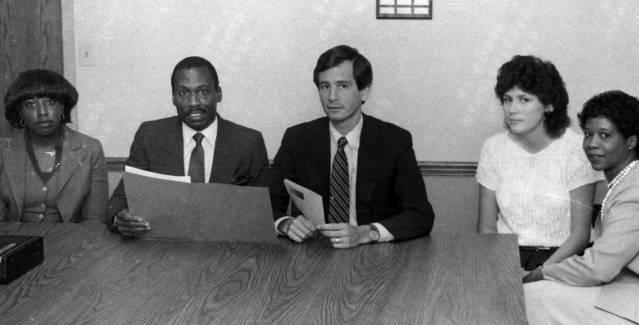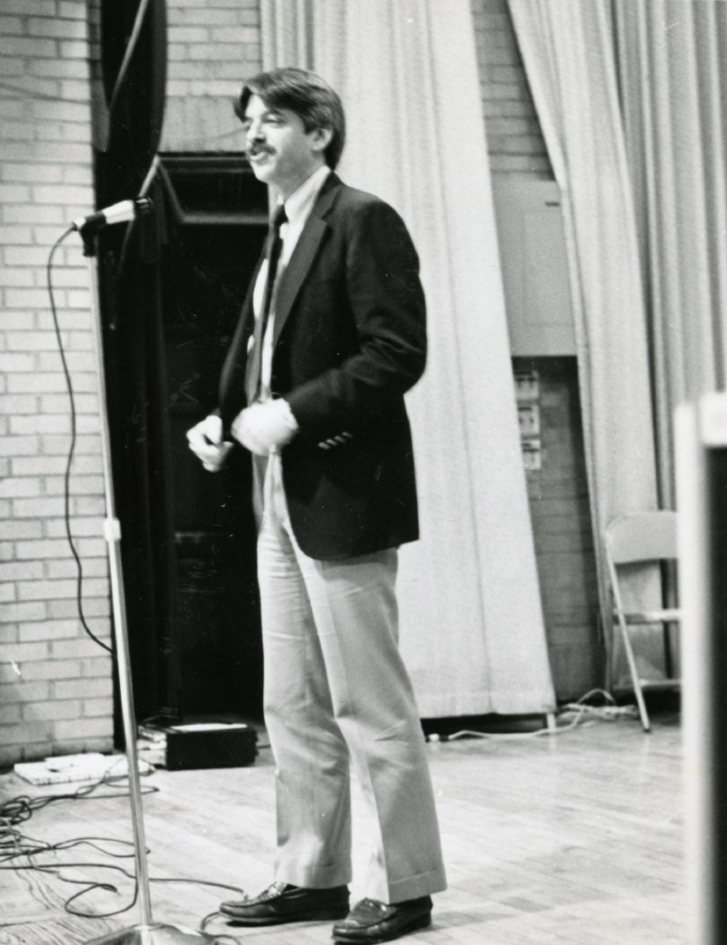A decision in December 1990, by Indianapolis Mayor not to seek reelection following his unsuccessful run for secretary of state signaled the beginning of the 1991 mayoral campaign. In the May primaries, Democrats chose Louis Mahern, a 15-year state senator, as their candidate. Republicans selected Stephen Goldsmith, a three-term Marion County prosecutor, over Virginia Blankenbaker, a state senator who had challenged Goldsmith’s endorsement by the county Republican caucus and called for crossover primary votes from Democrats. Also on the ballot were candidates for the City-County Council and other local offices.

In a series of public forums, Mahern and Goldsmith debated a number of issues ranging from education and the to crime and the state of the city’s infrastructure. On the subject of education, Goldsmith supported school choice, increased parental involvement, and stated that he would try to end court-ordered busing. Mahern advocated school choice and the need for the reestablishment of neighborhood schools.
While both candidates supported the completion of the Circle Centre Mall, Goldsmith pledged not to spend any more public dollars on it. On the issue of crime, Mahern supported a waiting period for gun buyers, Goldsmith wanted to move some police administrators back to the streets, and both men supported the concept of community policing.

While agreeing that the city’s infrastructure was in need of improvement, the candidates differed on both the costs and means of payment. Goldsmith argued that $100 million to $200 million could be cut from the $1.1 billion price tag outlined in an Indianapolis report on the subject. Mahern endorsed the report’s findings. Both candidates opposed raising property taxes to pay the bill. Mahern, however, proposed a new stormwater runoff tax, an increase in the city’s sewer tax, and the creation of a tax on commuters who worked in Marion County but paid no local taxes. Goldsmith stated that he would endorse a debate on increased user fees to pay for the necessary repairs. Both candidates were in favor of selling certain city assets, such as and golf courses, as another means of raising the necessary funds.
While engaged in one of the city’s most negative mayoral campaigns, Goldsmith and Mahern together spent an unprecedented $2 million on TV, radio, and direct-mail advertising. By the fall of 1991, with polls indicating that Goldsmith had the lead over Mahern, the candidates turned increasingly to social issues to attract voters in the final weeks of the campaign. Mahern won support from the city’s gay community and announced his support for the pro-choice side of the abortion issue, hoping to attract women voters. Goldsmith responded with ads promoting his views toward achieving equal employment opportunities and increased child support for women.
The final issue of the campaign surfaced after Goldsmith delayed announcing his support for an incentive package developed by Mayor Hudnut and Governor Evan Bayh to bring a and 18,000 additional jobs to Indianapolis. Mahern immediately endorsed the plan and attacked Goldsmith’s reluctant support. Goldsmith replied that he was protecting the taxpayers’ interest against a possible future tax increase by exercising hesitancy.
Less than half of the 417,000 eligible voters turned out to vote on November 5. Goldsmith won with 110,545 votes to Mahern’s 79,817. Mahern lost much of the traditionally Democratic Catholic vote because of the abortion issue, yet he maintained the Black community’s vote. Goldsmith dominated the votes from the overwhelmingly white outlying precincts. Goldsmith’s victory continued the Republican control of the city’s government that had begun in 1968.

Help improve this entry
Contribute information, offer corrections, suggest images.
You can also recommend new entries related to this topic.

